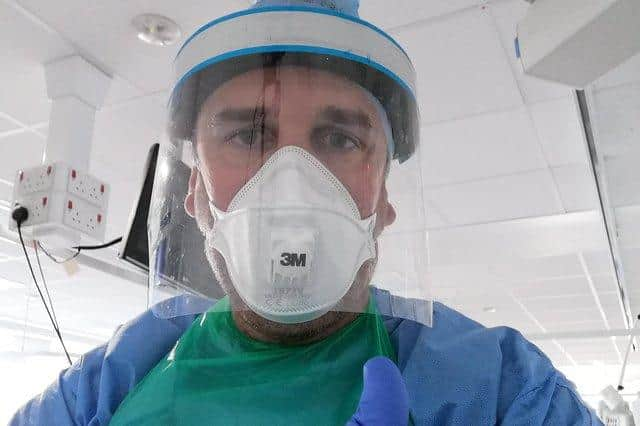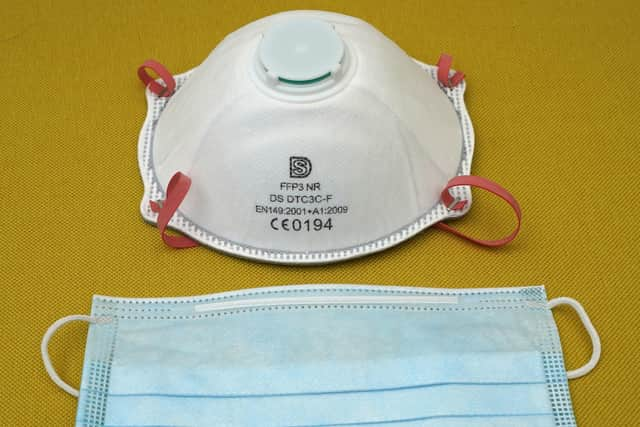Former Sheffield nurse says Covid deaths ‘could have been prevented’ with better PPE
and live on Freeview channel 276
Addenbrooke’s Hospital in Cambridge found that upgrading protective equipment for staff on its Covid-19 wards from fluid resistant surgical masks (FRSMs) to filtering face piece 3 (FFP3) respirators led to a dramatic fall of up to 100 per cent in hospital-acquired coronavirus infections among those workers.
The UK Infection Prevention Control (IPC) cell until recently recommended that FRSMs were suitable for staff treating Covid patients in all but the most high-risk circumstances.
Advertisement
Hide AdAdvertisement
Hide AdGuidance has only recently been updated to oblige NHS organisations to assess the risk Covid-19 poses to their staff and provide FFP3 respirators where appropriate.


Joan Pons Laplana is a GMB union representative who until recently worked as a nurse for Sheffield Teaching Hospitals and had looked after Covid patients in intensive care.
He says he has no issue with the trust, which always followed the guidance in place, but believes the Government should have done more to protect his NHS colleagues nationally.
“All frontline care staff should have been given maximum protection but in March last year, near the start of the pandemic, the Government downgraded the guidance on PPE ” he said.
Advertisement
Hide AdAdvertisement
Hide Ad

“Nearly 1,000 of my NHS colleagues nationally have sadly died and I believe that a lot of them would still be here today had the Government not put money before people.
“This research shows that in many cases their deaths could have been prevented.
“Failing to give all staff the protection they need is like sending soldiers to war without the proper equipment. It’s unacceptable.”
Before Addenbrooke’s made the change, coronavirus cases were higher among staff on Covid wards than non-Covid wards in seven out of the eight weeks analysed.
Advertisement
Hide AdAdvertisement
Hide AdAfterwards, there was little difference between the infection rates on the two types of wards.
Researchers, whose findings have yet to be peer-reviewed, concluded that prior to the upgrade staff on Covid wards were at 47 times greater risk of being infected at work than those on non-Covid wards.
Dr Chris Illingworth, from the MRC Biostatistics Unit at Cambridge University, said: “Once FFP3 respirators were introduced, the number of cases attributed to exposure on Covid-19 wards dropped dramatically – in fact, our model suggests that FFP3 respirators may have cut ward-based infection to zero.”
Dr Michael Weekes, from Cambridge University’s Department of Medicine, said: “Our data suggests there’s an urgent need to look at the PPE offered to healthcare workers on the frontline.”
Advertisement
Hide AdAdvertisement
Hide AdA Department of Health and Social Care spokesperson said: “The safety of the NHS and social care staff has always been our top priority and we continue to work round the clock to deliver PPE to protect those on the front line.
“Guidance on the appropriate levels and standards of PPE is written by experts and agreed by all four UK chief medical officers.
“Updated infection prevention control guidance was published this month to reflect the latest scientific understanding on how to prevent transmission of Covid-19.
“Emerging evidence and data are continually monitored and reviewed and guidance will be amended accordingly if appropriate.”